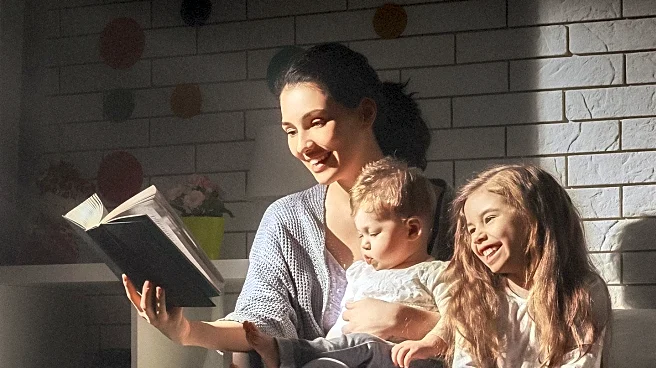What's Happening?
A new book by Madeleine Beekman, 'The Origin of Language,' proposes that the need for child-rearing assistance among early humans may have led to the development of language. Beekman, a professor emerita of evolutionary biology, argues that the vulnerability of human infants necessitated communication innovations, leading to the creation of language. This perspective challenges traditional theories that focus on male-dominated activities like hunting and toolmaking. Beekman suggests that language evolved as a tool for cooperation and communication, primarily to address the needs of offspring. The book explores the biological changes that facilitated language development, such as vocal cord elongation and brain growth, and emphasizes the role of familial care in human evolution.
Why It's Important?
Beekman's theory offers a novel perspective on the origins of language, highlighting the importance of caregiving and cooperation in human evolution. This approach shifts the focus from competitive survival strategies to the collaborative nature of child-rearing. Understanding the role of parental care in language development could influence current views on parenting and community support. The theory also contributes to ongoing debates in evolutionary biology about the unique characteristics of human language and its relationship to abstract thinking. By emphasizing interdependence, Beekman's work encourages a reevaluation of societal norms around parenting and communal living.
Beyond the Headlines
The book's insights into the cooperative nature of early human societies may have implications for modern parenting practices. As technological advancements have led to more isolated parenting, Beekman's research suggests that communal child-rearing could offer benefits for both parents and children. The historical context of language development as a tool for survival and cooperation may inspire new approaches to fostering community support and collaboration in contemporary settings. Additionally, the focus on caregiving challenges traditional narratives of human evolution, potentially influencing future research and policy discussions.









